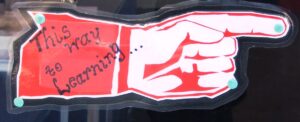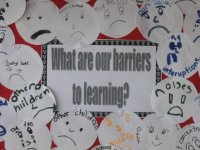Starting the year right – building learning-focused relationships
By Editor on January 22, 2014 in Assessment for learning
If we want students who are confident, connected, actively involved, lifelong learners, how do we maximise the beginning of the school year to ensure this happens?
We often use words such as ‘learning’ and ‘learner’ with our students, yet how often do we stop and check that they understand what these words actually mean? It seems to me that with a new year before us we have an opportune time to unpack these concepts with our students. Learning-focused relationships with and between students will not happen by accident; they need to be nurtured through careful planning and design.

So what are some practical ways of doing this in the classroom? As education consultants working in schools, we are privileged to work with teachers to build and strengthen the learning focused relationships with their students. It is always a delight to see the creative and effective ways teachers have developed students’ identity as learners, and strengthened students’ voice and engagement in their learning.
Here are some ideas you might like to explore with your students.
Brainstorm what learning is and what it means to be a learner. If you are doing this with younger students it is useful to use visuals so that they are able to access the information at a later date.
Look up the words ‘learn’ and ‘learner’ in a dictionary or thesaurus.
Write a class definition for learning and refer to it and change it throughout the year.
Complete a Y-chart on learning.
Co-construct some criteria for effective learners.
Co-construct with your students a learning slogan such as ‘Learning is Mission Possible.’
Discuss and design a door sign that establishes the classroom as a learning zone.
Talk about what bugs your students when they are learning. Talk about what students can do to solve these issues.

This blog post was written in collaboration with Barbara-Anne Alexander, former consultant with Evaluation Associates | Te Huinga Kākākura Mātauranga.
Other articles you might like
“You don’t have to be frightened about learning. You just have to be prepared to ask lots of questions . . . to find out what you don’t know. I like helping the others too . . .” Derek – Year 6 ‘priority learner’
A few years ago I visited a school for the first time and a teacher asked what my job was. I told her that I was a facilitator and a lot of my work in schools was supporting teachers and students with assessment for learning. “Ugh… assessment,’ she replied. “If they would just let us get on with teaching!” It was a wonderfully honest response, which demonstrated to me how assessment can start to be viewed as a required task which sits separately to teaching and learning, rather than the bridge between teaching and learning.
Have a think about the last time you deliberately had to learn something. What did you do to help you learn? What helped? What was most useful?
